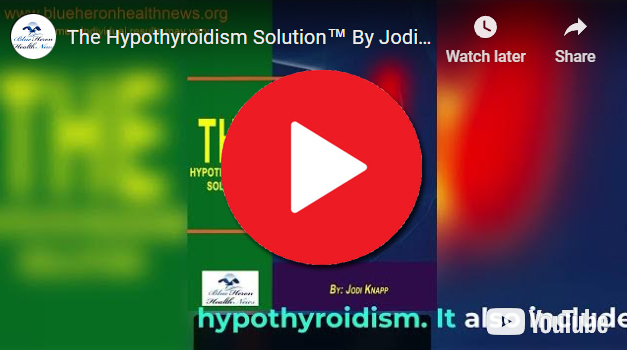
Hypothyroidism is a condition in which the thyroid gland does not produce enough thyroid hormones, resulting in a slowed metabolism and a variety of symptoms such as fatigue, weight gain, depression, and dry skin. While conventional medical treatment typically involves synthetic thyroid hormone replacement therapy, some people may be interested in exploring natural approaches to support thyroid function. It’s important to note that natural remedies should not replace prescribed medication or medical advice. However, here are some natural strategies that may help support thyroid health:
- Balanced Diet: Eat a nutrient-rich, well-balanced diet that includes a variety of whole foods. Focus on consuming iodine-rich foods like seaweed, seafood, and iodized salt, as iodine is essential for thyroid hormone production. Also, ensure an adequate intake of selenium, zinc, iron, and vitamins B and D.
- Stress Management: Chronic stress can negatively impact thyroid function. Engage in stress-reducing activities such as meditation, deep breathing exercises, yoga, or hobbies that promote relaxation.
- Regular Exercise: Regular physical activity can help boost metabolism and improve overall health. Aim for a combination of cardiovascular exercises, strength training, and flexibility exercises.
- Herbal Supplements: Some herbal supplements may support thyroid function. However, it’s crucial to consult with a healthcare professional before taking any supplements, as they can interact with medications or have side effects. Examples of herbs that may be beneficial include ashwagandha, guggul, and bladderwrack.
- Avoid Goitrogenic Foods: Some foods can interfere with thyroid function by inhibiting iodine uptake. Examples include cruciferous vegetables (e.g., broccoli, cauliflower, cabbage, Brussels sprouts), soy products, and millet. While these foods are healthy and should not be completely avoided, it’s recommended to consume them cooked and in moderation.
- Limit Exposure to Environmental Toxins: Certain environmental toxins, such as heavy metals and pesticides, can disrupt thyroid function. Minimize exposure by choosing organic produce, filtering drinking water, and reducing the use of household chemicals.
- Get Sufficient Sleep: Aim for 7-9 hours of quality sleep each night. Lack of sleep can negatively impact hormone production and metabolism.
- Support Gut Health: A healthy gut is crucial for overall well-being, including thyroid function. Consume a diet rich in fiber, probiotics (found in fermented foods like yogurt and sauerkraut), and consider consulting a healthcare professional about any gut-related issues.
Remember, these natural strategies may complement conventional medical treatment but should not replace it. Always consult with a qualified healthcare professional before making any changes to your treatment plan or starting any new supplements.
See More on Video

The Hypothyroidism Solution™ By Jodi Knapp This guide includes a stepwise guide that can be followed easily to recover from the problem of hypothyroidism. It also includes detailed information about the routine of detoxing and cleansing your system before following the program provided in this eBook.